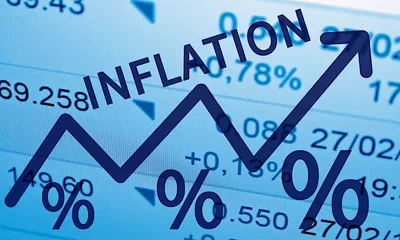As the festive season approaches, Nigerians face a challenging holiday period, grappling with a record-high transport inflation rate of 30.54% in November 2024.
According to the latest Consumer Price Index report by the National Bureau of Statistics (NBS), this marks the highest transport inflation rate of the year, underscoring the growing financial strain on individuals and businesses.
Transport inflation has been a persistent issue throughout 2024, consistently exceeding 2023 levels. Starting at 25.92% in January 2024, up from 21.02% in January 2023, the rate stabilized mid-year at an average of 25.63% in May and June.
However, it surged again to 27.21% in September following a spike in fuel prices, peaking at 30.54% in November—a 3.52 percentage point increase from November 2023’s 27.02%.
The sharp rise in transportation costs is attributed to several economic and policy-related factors. Chief among these is the removal of fuel subsidies, a decision implemented shortly after President Bola Tinubu took office in May 2023.
While intended to stabilize public finances and boost economic growth, the policy has caused a steep increase in petrol and diesel prices, essential for road and public transportation.
Adding to the strain, the Nigerian National Petroleum Company Limited (NNPCL) reported a request for an additional subsidy refund of N1.19 trillion in July 2024, citing exchange rate differentials and joint venture taxes on Premium Motor Spirit (PMS) imports.
READ ALSO: Naira gains at official market amid inflation rise, loses ground in parallel market
These challenges have significantly impacted the Federation Account, with exchange rate fluctuations driving under-recovery costs from N4.56 trillion in June 2024 to N5.31 trillion in July.
The naira’s depreciation, from N769 per US dollar in June 2023 to an average of N1,550 per dollar by December 2024, has further compounded the issue. Imported spare parts, vehicles, and fuel have become costlier, forcing transport operators to transfer these expenses to consumers.
The economic ripple effects have been profound. Poor road infrastructure, limited alternatives like rail transport, and rising fuel prices have exacerbated inefficiencies in the sector.
Nigerians are burdened by increasing daily expenses, while small and medium enterprises face escalating logistics costs, driving up the prices of goods and services.
Transport inflation mirrors broader economic challenges under Tinubu’s administration. The headline inflation rate has surged from 22.41% in May 2023 to 34.60% in November 2024—the highest in nearly three decades.
Despite the Central Bank of Nigeria raising interest rates by 875 basis points in 2024 to curb inflation, these measures have shown limited success.
READ ALSO: Rashford sparks debate over future at Manchester United after comments on “New Challenge
In a bid to alleviate the financial burden, the Federal Government and private stakeholders have introduced measures to ease transportation costs during the holiday season.
President Tinubu approved free nationwide train rides from December 20, 2024, to January 5, 2025, offering some respite for holiday travelers. Additionally, a 50% reduction in interstate transport fares has been announced, facilitated through a memorandum of understanding with key transport operators.
As Nigerians brace for the holidays, the recent policy measures and fuel price reductions offer a glimmer of hope. If fuel prices continue to decline and the naira stabilizes, the economic pressures from transportation costs could ease, providing much-needed relief in the new year.
However, addressing underlying issues like infrastructure deficits and inflationary trends remains critical to achieving long-term economic stability.

 Health7 days ago
Health7 days ago
 Crime1 week ago
Crime1 week ago
 Comments and Issues1 week ago
Comments and Issues1 week ago
 Latest1 week ago
Latest1 week ago
 Comments and Issues1 week ago
Comments and Issues1 week ago
 Comments and Issues1 week ago
Comments and Issues1 week ago
 Comments and Issues1 week ago
Comments and Issues1 week ago
 Latest6 days ago
Latest6 days ago

